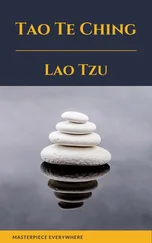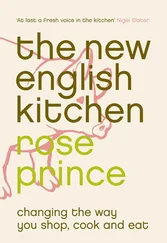They have no faith in their people,
And their people become unfaithful to them.
When the best rulers achieve their purpose
Their subjects claim the achievement as their own.
18. Hypocrisy
When the Way is forgotten
Duty and justice appear;
Then knowledge and wisdom are born
Along with hypocrisy.
When harmonious relationships dissolve
Then respect and devotion arise;
When a nation falls to chaos
Then loyalty and patriotism are born.
If we could abolish knowledge and wisdom
Then people would profit a hundredfold;
If we could abolish duty and justice
Then harmonious relationships would form;
If we could abolish artifice and profit
Then waste and theft would disappear.
Yet such remedies treat only symptoms
And so they are inadequate.
People need personal remedies:
Reveal your naked self and embrace your original nature;
Bind your self-interest and control your ambition;
Forget your habits and simplify your affairs.
What is the difference between assent and denial?
What is the difference between beautiful and ugly?
What is the difference between fearsome and afraid?
The people are merry as if at a magnificent party
Or playing in the park at springtime,
But I am tranquil and wandering,
Like a newborn before it learns to smile,
Alone, with no true home.
The people have enough and to spare,
Where I have nothing,
And my heart is foolish,
Muddled and cloudy.
The people are bright and certain,
Where I am dim and confused;
The people are clever and wise,
Where I am dull and ignorant;
Aimless as a wave drifting over the sea,
Attached to nothing.
The people are busy with purpose,
Where I am impractical and rough;
I do not share the peoples' cares
But I am fed at nature's breast.
Harmony is only in following the Way.
The Way is without form or quality,
But expresses all forms and qualities;
The Way is hidden and implicate,
But expresses all of nature;
The Way is unchanging,
But expresses all motion.
Beneath sensation and memory
The Way is the source of all the world.
How can I understand the source of the world?
By accepting.
Accept and you become whole,
Bend and you straighten,
Empty and you fill,
Decay and you renew,
Want and you acquire,
Fulfill and you become confused.
The sage accepts the world
As the world accepts the Way;
He does not display himself, so is clearly seen,
Does not justify himself, so is recognized,
Does not boast, so is credited,
Does not pride himself, so endures,
Does not contend, so none contend against him.
The ancients said, "Accept and you become whole",
Once whole, the world is as your home.
Nature says only a few words:
High wind does not last long,
Nor does heavy rain.
If nature's words do not last
Why should those of man?
Who accepts harmony, becomes harmonious.
Who accepts loss, becomes lost.
For who accepts harmony, the Way harmonizes with him,
And who accepts loss, the Way cannot find.
Straighten yourself and you will not stand steady;
Display yourself and you will not be clearly seen;
Justify yourself and you will not be respected;
Promote yourself and you will not be believed;
Pride yourself and you will not endure.
These behaviours are wasteful, indulgent,
And so they attract disfavour;
Harmony avoids them.
There is a mystery,
Beneath abstraction,
Silent, depthless,
Alone, unchanging,
Ubiquitous and liquid,
The mother of nature.
It has no name, but I call it "the Way";
It has no limit, but I call it "limitless".
Being limitless, it flows away forever;
Flowing away forever, it returns to my self:
The Way is limitless,
So nature is limitless,
So the world is limitless,
And so I am limitless.
For I am abstracted from the world,
The world from nature,
Nature from the Way,
And the Way from what is beneath abstraction.
Gravity is the source of lightness,
Calm, the master of haste.
A lone traveller will journey all day, watching over his belongings;
Yet once safe in his bed he will lose them in sleep.
The captain of a great vessel will not act lightly or hastily.
Acting lightly, he loses sight of the world,
Acting hastily, he loses control of himself.
A captain can not treat his great ship as a small boat;
Rather than glitter like jade
He must stand like stone.
The perfect traveller leaves no trail to be followed;
The perfect speaker leaves no question to be answered;
The perfect accountant leaves no working to be completed;
The perfect container leaves no lock to be closed;
The perfect knot leaves no end to be ravelled.
So the sage nurtures all men
And abandons no one.
He accepts everything
And rejects nothing.
He attends to the smallest details.
So the strong must guide the weak,
For the weak are raw material to the strong.
If the guide is not respected,
Or the material is not cared for,
Confusion will result, no matter how clever one is.
This is the secret of perfection:
When raw wood is carved, it becomes a tool;
When a man is employed, he becomes a tool;
The perfect carpenter leaves no wood to be carved.
Using the male, being female,
Being the entrance of the world,
You embrace harmony
And become as a newborn.
Using strength, being weak,
Being the root of the world,
You complete harmony
And become as unshaped wood.
Using the light, being dark,
Being the world,
You perfect harmony
And return to the Way.
Those who wish to change the world
According with their desire
Cannot succeed.
The world is shaped by the Way;
It cannot be shaped by the self.
Trying to change it, you damage it;
Trying to possess it, you lose it.
So some will lead, while others follow.
Some will be warm, others cold
Some will be strong, others weak.
Some will get where they are going
While others fall by the side of the road.
So the sage will be neither wasteful nor violent.
Powerful men are well advised not to use violence,
For violence has a habit of returning;
Thorns and weeds grow wherever an army goes,
And lean years follow a great war.
A general is well advised
To achieve nothing more than his orders:
Not to take advantage of his victory.
Nor to glory, boast or pride himself;
To do what is dictated by necessity,
But not by choice.
For even the strongest force will weaken with time,
And then its violence will return, and kill it.
Armies are tools of violence;
They cause men to hate and fear.
The sage will not join them.
His purpose is creation;
Their purpose is destruction.
Weapons are tools of violence,
Not of the sage;
He uses them only when there is no choice,
Читать дальше
![Lao Zi Dao De Jing [Tao Te Ching] (english) обложка книги](/books/3890/lao-zi-dao-de-jing-tao-te-ching-english-cover.webp)
![Lao Zi - Dao De Jing [Tao Te Ching] (chinese)](/books/3891/lao-zi-dao-de-jing-tao-te-ching-chinese-thumb.webp)
![Lao Zi - Dao De Jing [Tao Te Ching] (espanol)](/books/3892/lao-zi-dao-de-jing-tao-te-ching-espanol-thumb.webp)
![Автор неизвестен Эпосы, мифы, легенды и сказания - Самые лучшие английские легенды [The Best English Legends]](/books/34729/avtor-neizvesten-eposy-mify-legendy-i-skazaniya-s-thumb.webp)








